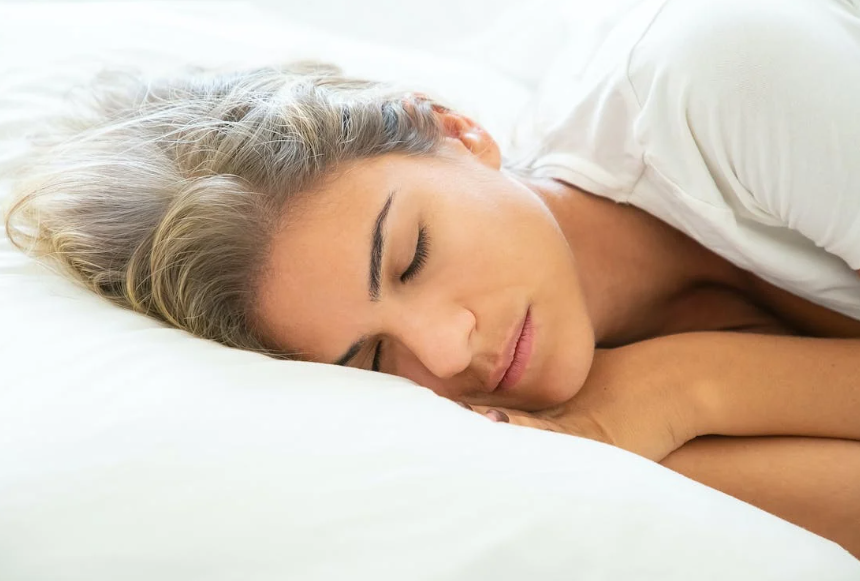Mindfulness to Sleep
Read on to learn about the different types of meditation for sleep and how to meditate for improved sleep. We’ll also look at the benefits and possible risks.

Selfpause Affirmation App
Download the app to get 1,000’s of affirmation meditations and everything you need to write, record and listen to your own.
When you’re putting your baby to sleep, you want to make sure he or she has a peaceful, relaxing environment. If your child struggles with sleep, there are several ways to help him or her get the restful sleep that they need. One of the most effective ways to help your child sleep is by teaching good sleep hygiene. Without this, your child will not know how to fall asleep properly or wake up in the middle of the night cranky and overtired.
Guided imagery

If you suffer from anxiety or stress, guided imagery can help you relax. This relaxation technique focuses on focusing on pleasant scenes instead of stressful ones. It can improve your emotional, physical, and mental state. For beginners, it is best to practice for just a few minutes each day. To get started, look up images of soothing scenes on the Internet.
Studies have shown that guided imagery can be used to manage pain following orthopedic surgery. One study found that patients who practiced the technique reported a significant decrease in post-surgery pain. Another study combined guided imagery with progressive muscle relaxation. Another review found that guided imagery could reduce pain following a child’s orthopedic surgery.
Guided imagery is an excellent way to help your body relax before sleeping. It uses the power of the imagination to transport you into a peaceful, nighttime scene. It starts with a deep breathing exercise to relax the body and mind. Next, a visualization exercise takes you to a relaxing night scene, where you can imagine yourself relaxing and letting go of any stress.
Using guided imagery to sleep can help you sleep more soundly at night. It allows you to escape the constant clamor of your mind, which disrupts your sleep. Guided imagery can be as short as a few minutes, or as long as a whole audio.
Body scan

Before you head to bed, try a body scan meditation. Start by lying down or sitting comfortably, and try to focus on the sensations on your head, including pressure, vibration, and emotions. As you go along, try to notice any sensations that may be bothering you or keeping you from falling asleep.
The body scan meditation may take up to 30 minutes, depending on how long you can spend meditating. It is best done in a comfortable location, away from distractions. Using essential oils may help you relax more quickly. This technique is most effective when practiced regularly. It can be practiced daily, or just three or six times a week.
The body scan meditation will increase interoceptive awareness, which can help you better manage stress and pain. It also increases the production of DHEA, an important precursor of other hormones. Increasing your interoceptive awareness through body scanning can help you cope better with future stressors, and it can even help you sleep better.
The body scan meditation has been studied in insomnia treatment trials. One study involved 54 participants who received an internet-based CBTI program. Participants were divided into a body scan and a non-body scan group. The groups were compared in post-treatment and follow-up tests. Both groups showed improvements in subjective and objective sleep measures. In addition, improvements were maintained at the two-month follow-up.
Meditation

Meditation for sleep is a simple process that helps you relax the mind and body before going to bed. It involves visualizing a calm, serene place. The first step to meditation for sleep is to relax your body by lying on your back. After you have done this, close your eyes and focus on your breathing. This helps you dissociate your thoughts from all your worries and start relaxing your mind. There are two main types of meditation that can help you sleep.
One of the main benefits of meditation is that it helps your body produce melatonin, the sleep hormone. This hormone is produced by the pineal gland over the center of the brain and helps your body understand that it is time to sleep. This hormone is most active in the evening. Another benefit of meditation is that it helps you relax and let go of your thoughts, which allows your body to rest and recover. It also helps you to reduce stress, anxiety, and blood pressure, all of which lead to better sleep.
Another benefit of meditation is that it can be done anywhere, including your bed. Some people find it helpful to meditate right before going to sleep. Just make sure you have a quiet room and a comfortable mattress. There are many different techniques of meditation, but most of them are designed to help you relax.
Neuroticism

Neuroticism is an over-reactive state of mind. This type of thinking leads to a variety of unpleasant experiences. These include social disconnection, excessive worry, and unexplained physical symptoms. People with high neuroticism also have difficulty managing stress. Even minor events can cause great emotional upheaval.
Researchers have identified a relationship between neuroticism and sleep quality. People with lower neuroticism reported better sleep. Meditation and mindfulness training can help improve this trait. The relationship between neuroticism and sleep quality is not perfect, but it may be predictive of individual differences in improving sleep quality. In addition, it could be used as an intervention strategy to improve sleep quality.
The relationship between neuroticism and sleep was tested in a sample of college students. Students with low neuroticism showed better sleep quality than those with high neuroticism. This relationship was significant for students with low neuroticism but was not significant for high neurotic individuals. However, the negative affectivity of those with high neuroticism may be an important contributor to reduced sleep quality.
Among college students, poor sleep is associated with a range of psychopathologies. Studies suggest that a lack of sleep quality could lead to depression, anxiety, and other health conditions. One study found a correlation between childhood adversity and sleep quality. This association was stronger in men than women. The researchers also looked at whether trait neuroticism mediated the association. In women, neuroticism was not found to be a significant factor, but it did in men.
Stress reduction

Stress reduction through mindfulness to sleep is a way to improve your health and reduce stress levels. This technique involves practicing being mindful of the present moment and exploring feelings, thoughts, and bodily sensations. While this method is not easy, it does require a bit of practice. There are videos and audio files available that illustrate how to practice mindfulness. The UCLA Mindful Awareness Research Center also provides free guided meditations.
Practicing mindfulness helps to increase your sense of well-being by turning off the “doing” mode of your mind. It helps you to be more aware of your body’s needs and builds emotional intelligence. It also helps reduce conflict by creating a compassionate mind. This compassionate mind calms the stress response and reduces the activity of the amygdala, which is central to the stress response.
The principles of mindfulness-based stress reduction were developed by Jon Kabat-Zinn, a medical professor at the University of Massachusetts Medical School. He developed a flexible method to help patients learn how to reduce stress. This method involves daily mindfulness exercises and weekly group sessions.
Depression

Researchers have found that mindfulness meditation has positive effects on sleep, and is a helpful way to improve sleep quality. In one study, participants who practiced mindfulness had higher quality sleep, and their levels of anxiety and depression were lower. In addition, the researchers noted that they also had reduced levels of depression and fatigue. Further research is needed to investigate whether mindfulness meditation can help people with depression.
This study found that mindfulness training increased both levels of self-compassion and improved sleep quality in depressed patients. In addition, mindfulness training improved symptoms of anxiety and other stress-related conditions. Further, these effects are mediated by autonomic regulation and attentional bias. In addition, there is evidence to suggest that personality differences may be important in the effects of mindfulness training.
Depression is a common symptom among many people, and can manifest itself in a variety of ways. For some, it manifests as brief but intense bouts of sadness. Others experience it as an unmoving cloud that looms over their awareness. Still others do not recognize that they are depressed when their outer circumstances appear to be fine.
Insomnia

Meditation has been proven to be an effective method for treating insomnia. It can help you relax and feel more holy, which can help you fall asleep. Most meditation methods instruct disciples to find a center of concentration and focus. Other techniques, such as body scan meditation, are aimed at relaxing the entire body from head to toe.
In one study, participants who practiced mindfulness meditation before bedtime reported a reduced waking time and a faster onset of sleep. They also reported that they woke up feeling refreshed and had less stress associated with insomnia. The results were encouraging for people who suffer from insomnia and need a solution.
Insomnia is a widespread health concern, affecting many people and disrupting their lives. A new treatment, called Mindfulness-Based Therapy for Insomnia, uses meditation to teach patients how to control their emotional responses to sleep disturbances and reduce daytime fatigue. A six-week version of the therapy was recently evaluated in a sleep disorders clinic. It involved 30 participants who met the DSM-IV-TR definition of insomnia. Data were collected before, during, and after the treatment. The results were impressive, demonstrating that mindfulness-based therapy for insomnia reduced insomnia severity significantly. Moreover, the treatment effect lasted for several weeks after the treatment.
Patients with chronic insomnia are thought to be cognitively hyper-aroused, causing them to engage in rumination, worrying, and mind-racing. The goal of mindfulness meditation is to create a peaceful environment in the mind to sleep. The practice is effective when combined with other sleep-promoting habits.
Our Top FAQ's
Meditation and mindfulness techniques can be used to improve sleep by helping to relax the mind and body, reduce stress and anxiety, and improve overall well-being. These practices can also help to reduce sleep-related issues such as insomnia and restless sleep by promoting relaxation and calming the mind.
Some specific meditation and mindfulness practices that can help with sleep include:
- Progressive muscle relaxation: This involves tensing and relaxing different muscle groups to promote relaxation and reduce tension in the body.
- Guided meditation: This involves listening to a recorded meditation or being guided through a meditation by a teacher or app. There are many different types of guided meditations available, including ones specifically designed for sleep.
- Mindfulness-based stress reduction (MBSR): This is a structured program that combines mindfulness practices with other techniques to reduce stress and improve well-being.
- Body scan meditation: This involves lying down and focusing on each part of the body, starting at the toes and moving up to the head, to promote relaxation and calm the mind.
Meditation and mindfulness can help to reduce sleep-related issues by promoting relaxation and calming the mind. These practices can also help to reduce stress and anxiety, which can interfere with sleep. By practicing mindfulness and becoming more aware of your thoughts and emotions, you can learn to let go of any negative or racing thoughts that may be preventing you from falling asleep.
Yes, meditation and mindfulness can be practiced before bedtime to improve sleep quality. In fact, many people find that these practices are particularly effective when done just before bed, as they can help to calm the mind and promote relaxation. It’s important to find a practice that works for you and to be consistent in your practice.
The benefits of meditation and mindfulness extend to sleep and overall well-being in several ways. These practices can help to reduce stress and anxiety, which can interfere with sleep and contribute to overall feelings of well-being. They can also help to improve focus and concentration, which can improve overall productivity and satisfaction with life. Additionally, mindfulness practices have been shown to have positive effects on physical health, including reducing blood pressure and improving immune function.
